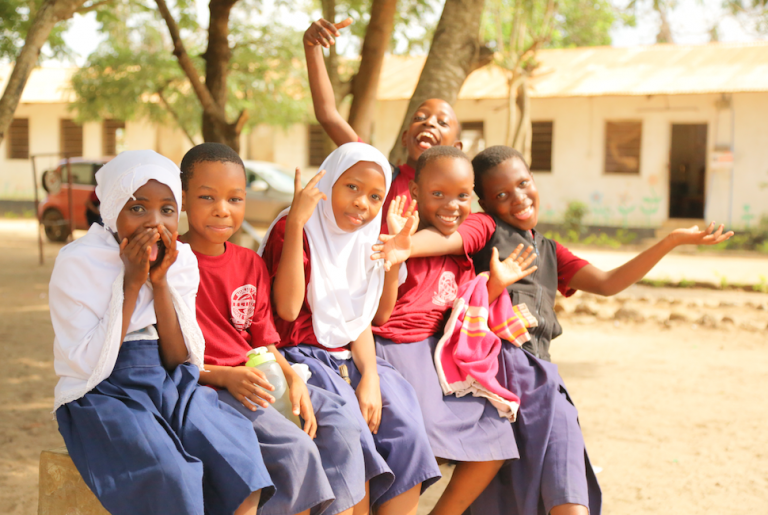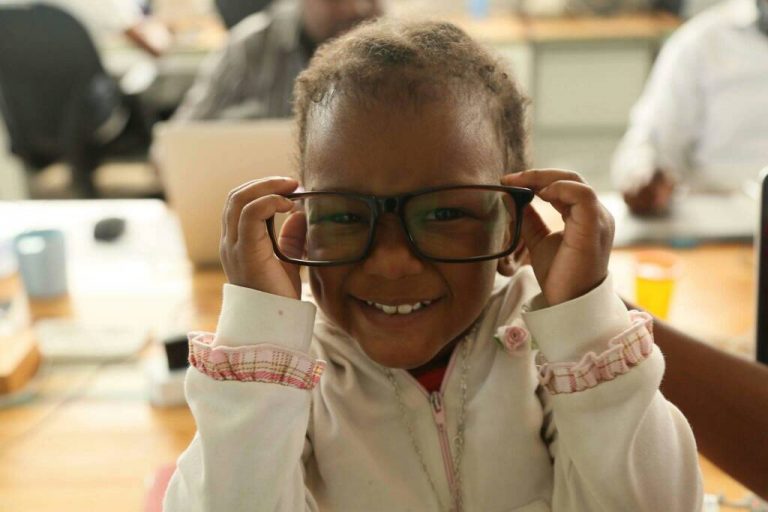The stories we tell our girls can affect their future.
From birth, girls around the world are dressed in girly pink clothes and princess tiaras and are exposed to fairy tales like Cinderella, Snow White, and Sleeping Beauty through children’s books, TV, and other media.
While these princess fairy tales are of Western origin, globalisation of media and increased access to technology have made these tales commonplace across the African continent.While these princess fairy tales are of Western origin, globalisation of media and increased access to technology have made these tales commonplace across the African continent.
While fairy tales are often seen as harmless content for children, traditional princess stories can have a negative impact as they perpetuate stereotypical gender roles and affect how young girls value themselves.
What does it take to live happily ever after?
The narrative in most princess stories usually involves a young beautiful woman in a challenging situation; living a life of poverty and hard labour (Cinderella), [she often has] an evil step-mother who wants to harm her (Snow White, Sleeping Beauty), and is being exploited or locked away (Rapunzel) waiting to be rescued. These young women, unhappy with their lives, are eventually saved by handsome princes who fall in love with these women for their beauty.
Research by Common Sense Media has found that children can develop a sense of gender hierarchy during early childhood, and the content they consume can lead them to adopt gender biases (around the ages of 7 -10) like:
- Girls are emotional and boys are ambitious
- Girls like English and boys like Math
- Girls should be mothers, teacher, nurses (caregiver occupations) and boys should be doctors, lawyers, businessmen
The princess narrative tells girls that to live a happy life they have to be physically attractive and that instead of solving the challenges they encounter in life, they need to look to men to save them.
Moreover, beyond fairy tales, this storyline appears in plots for African movies, radio shows, and even animated series, all of which children consume and learn from. So a girl exposed to this narrative may grow up with the idea that her value is based on how she looks, and her happiness is dependent on a man.

Gender stereotypes perpetuate inequality and keep girls out of school.
Currently, women make up over 70% of the workforce in Africa’s biggest industry, agriculture. However, they make up only 20% of the characters with jobs in children’s content.
While women are key to economic growth in Africa, traditional societal norms perpetuate a state of gender inequality where, despite doing more work than men, women are still seen as the ‘weaker’ gender whose key contribution in society is child-rearing and taking care of their husband, children, extended family, and household activities. As a result, girls still receive less education and have less economic power than their male counterparts.
This view of women is at the heart of why so many girls in Africa drop out of school. According to the Borgen Project the key reasons for dropping out of school include:
- Poor families and communities would rather spend money educating boys than girls because boys are viewed as the breadwinners and girls the housewives
- Families force girls to leave school to help with housework and farming
- Some cultures pressure young girls to get married because they are seen as economic burden to a family and/or a source of economic gain through dowry payments
- Girls start engaging in sex at a young age, fall pregnant and get kicked out of school
So even though girls may want to stay in school and continue learning, too often they don’t receive the moral and financial support they may need from their parents, community and even teachers. And princess fairy-tales are incredibly problematic because they support the societal norm that girls should be dependent on men, which leads communities to value educating boys over girls.

Gender equality is the key to achieving economic growth in Africa.
Numerous studies have shown that the chances of children being literate and educated increase exponentially if their mother can read and write. Moreover, when women are given capital, they invest in finding sustainable ways to generate income and improve the lives of their families. Simply put, giving women the opportunities to be self-reliant individuals with rights uplifts society as a whole. So it’s paramount that we start to change the gender stereotypes that depict women as dependent on men and incapable of leadership roles.
If we want to improve the future of girls in Africa, part of our efforts should be directed towards changing societal beliefs that are perpetuated in children’s media. Luckily, there are some good examples of children’s content that challenge the princess fairy tale narrative and place girls as lead characters who are independent and can solve problems for their communities by themselves.
Alternatives to princess fairy tales that girls love.
In 2000, UNICEF developed the cartoon Sara, a show about a girl in an unidentified African village who helps her friends and family solve important social problems in their community. The show covered a number of issues facing the African girl child including early pregnancy, the right to education, circumcision, and child labour. The cartoon was a big hit with children of all genders and ages across Africa.
[embedyt] https://www.youtube.com/watch?v=fg-F8bUDKnU[/embedyt]
One particularly powerful episode involved Sara’s classmate, Tamala, who is impregnated by a schoolboy named Jackson. Once the village finds out, there is a big debate about what should be done with the students. Some members suggest that they kick the girl out of school, others say that both students should be expelled, but a wise teacher explains that kicking them out of school will deny them a chance to develop the skills they need to support themselves and their child. In the end, the community agrees that keeping both students in school is better for their future and growth of the community also.
[embedyt] https://www.youtube.com/watch?v=MBlE-uqBm-g[/embedyt]
Other great examples of children’s content that promote gender equality include Ubongo Kids and Akili and Me, which collectively air in over 30 countries across Africa. In the pre-school show, Akili and Me, the lead character is a girl, Akili, who doesn’t perpetuate any of the gender stereotypes like wearing the colour pink or dreaming of boys, instead, she focuses on learning English and having fun with her animal friends. Moreover, in Ubongo Kids, there are episodes where the female characters beat the boys in Mathematics and football, showing that girls can be equally good (if not better) in traditionally male-dominated topics.
Additionally, in Ubongo’s shows (Akili and Me and Ubongo Kids), female characters speak for at least half of the total screen time and often much more, compared with the television norm today where girls speak ~36% of total screen time.
Media Matters in the development of our girls.
Even if governments build more schools, hire more teachers, and issue policies that fine families who keep girls from school if we don’t change the mindset of communities, the education of girls in Africa will always be threatened. Media content that offers a positive representation of girls and young women can play a critical role in shifting this limiting mindset. Even today, only 7% of children’s TV and films are created by women. So, as people who care deeply about improving access to quality education for all children, we need to invest and support stories that empower girls to learn, be leaders, and change makers. As this is how they will truly live happily ever after.















